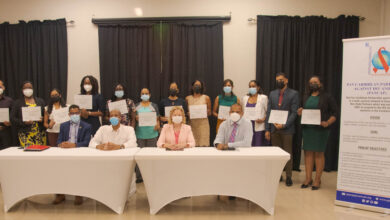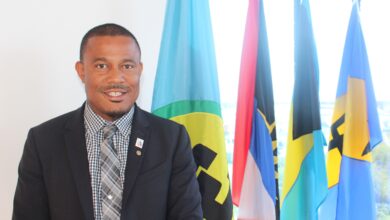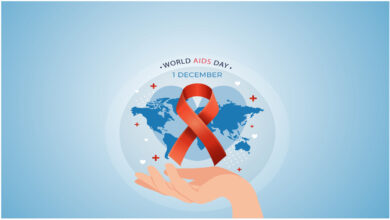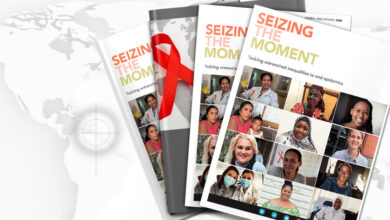LET US RESOLVE TO MAKE THE CARIBBEAN FIRST TO ZERO
Another year. Another World AIDS Day. So much to celebrate yet so much more to achieve. Young people are still dying. Rates of infection are too high among vulnerable groups. Raging stigma and discrimination continue to fan the flames of the disease. Volumes of information are available, yet intolerance and ignorance prevail. Myths, prejudice and fear repel rational policies and programmes. Financing gaps remain an obstacle. So why do I share the optimism implicit in this year's theme that ending the AIDS epidemic by 2030 is possible?
My reference point is the Caribbean. A region in which one of its countries, Cuba, is the first in the world to achieve the landmark of the World Health Organisation”s certification for eliminating mother to child transmission and congenital syphilis. A region where seven other countries are ready to be certified and four others are in close range. A region where the political leadership has endorsed the aspirational goal of the Caribbean being the first region, as a whole, to achieve this distinction and important milestone in ending AIDS.
The Caribbean has ushered in a movement under the indigenous banner of Justice for All, coordinated by CARICOM/PANCAP and UNAIDS . This movement has taken root throughout the region in the form of respectful dialogue aimed at achieving short, medium and long term targets. Through engagement among parliamentarians, faith leaders, civil society, the private sector, youth and the media, it has fostered a growing consensus; each stakeholder group identifying what they can contribute to ending AIDS in the Caribbean by 2030. Among the guiding principles of Justice for All are the ambitious UNAIDS targets based on scientific studies that if by 202O, 90 percent of people with HIV are tested, 90 percent of those tested are on treatment and 90 percent of those on treatment have zero transmission rates , then AIDS can be ended by 2030.
These ambitious targets are given meaning by the discussions around Justice for all which embrace strategies for prevention, access to affordable medicines, reducing dependence on external sources of funding, implementing laws against AIDS – related discrimination in the workplace, hospitals, schools and communities. They focus on policies and programmes designed to increase the scope of the human rights agenda to eliminate stigma and discrimination against vulnerable groups such as the abuse of women, girls, adolescent and children, men who have sex with men, sex workers and, drug addicts. children
There is no silver bullet to ensure that these principles will be achieved in practice . That Caribbean stakeholders are willing to explore individually and collectively how to proceed and what's to be done, is a good omen.
Let us therefore resolve on this World AIDS Day to work together without delay to accomplish those elements of Justice for All that are within our grasp. Let us, at the same time, frame our country and regional responses so that in the medium and longer term we can wrestle with those obstructions and break down the barriers that stand in the way of ending the AIDS epidemic.
Let us resolve to make the Caribbean the First to Zero.
Edward Greene
UN Secretary General Special Envoy for HIV in the Caribbean






